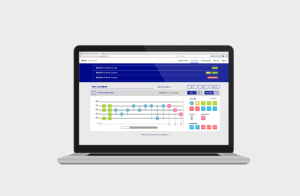
IBM-Q is IBM’s initiative to build commercially available universal quantum computers for business and science. IBM-Q currently recommends using QISKit and Quantum Composer for building quantum computing experiments, programs and applications which could run on real quantum computing hardware provided by IBM cloud. The details on how to get started with building and running Quantum applications can be provided on IBM’s website, IBM Q Experience (IBM-QX).
In this article, let’s look at further details in relation with QISKit SDK.
QISKit SDK for building Quantum Computing applications
IBM-Q recommends Python software development kit (SDK) namely Quantum Information Software Kit (QISKit) which can be used for building programs, applications that could run on IBM quantum computers (quantum computing hardware). Here are some reference links:
- Github page on QISKit: COnsists of files and details on how to install/setup QISKit and get started. It also presents a sample program (Hello World Quantum program) for getting you started with Quantum Superposition example.
- QISKit Website
One can get started with QISKit for working with OpenQASM (Quantum circuits gate specification) and IBM-Q Experience (Quantum computing hardware by IBM). QISKit can be used to create programs which can be run on one of the following:
- Real quantum processors
- Online simulators
- Local simulators
Interestingly, QISKit applications can be run on a real Quantum Chip, thanks to IBM-QX
- The Watermelon Effect: When Green Metrics Lie - January 25, 2026
- Coefficient of Variation in Regression Modelling: Example - November 9, 2025
- Chunking Strategies for RAG with Examples - November 2, 2025

I found it very helpful. However the differences are not too understandable for me